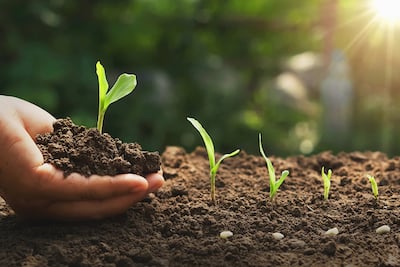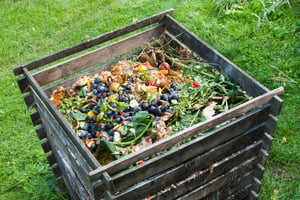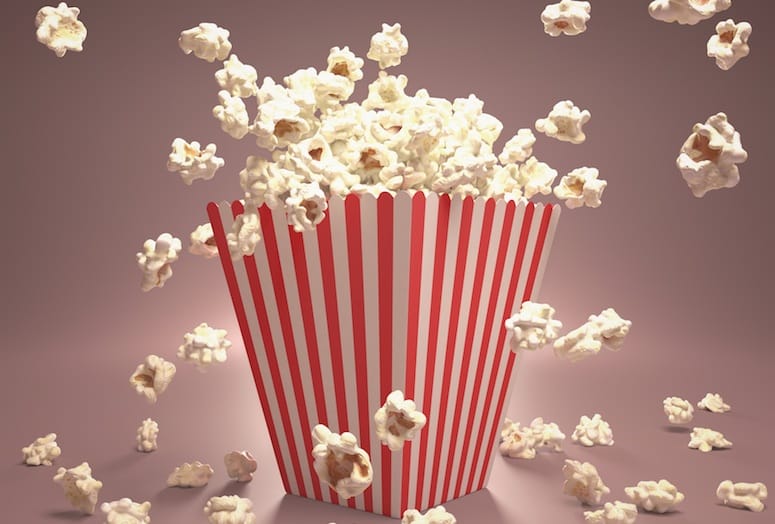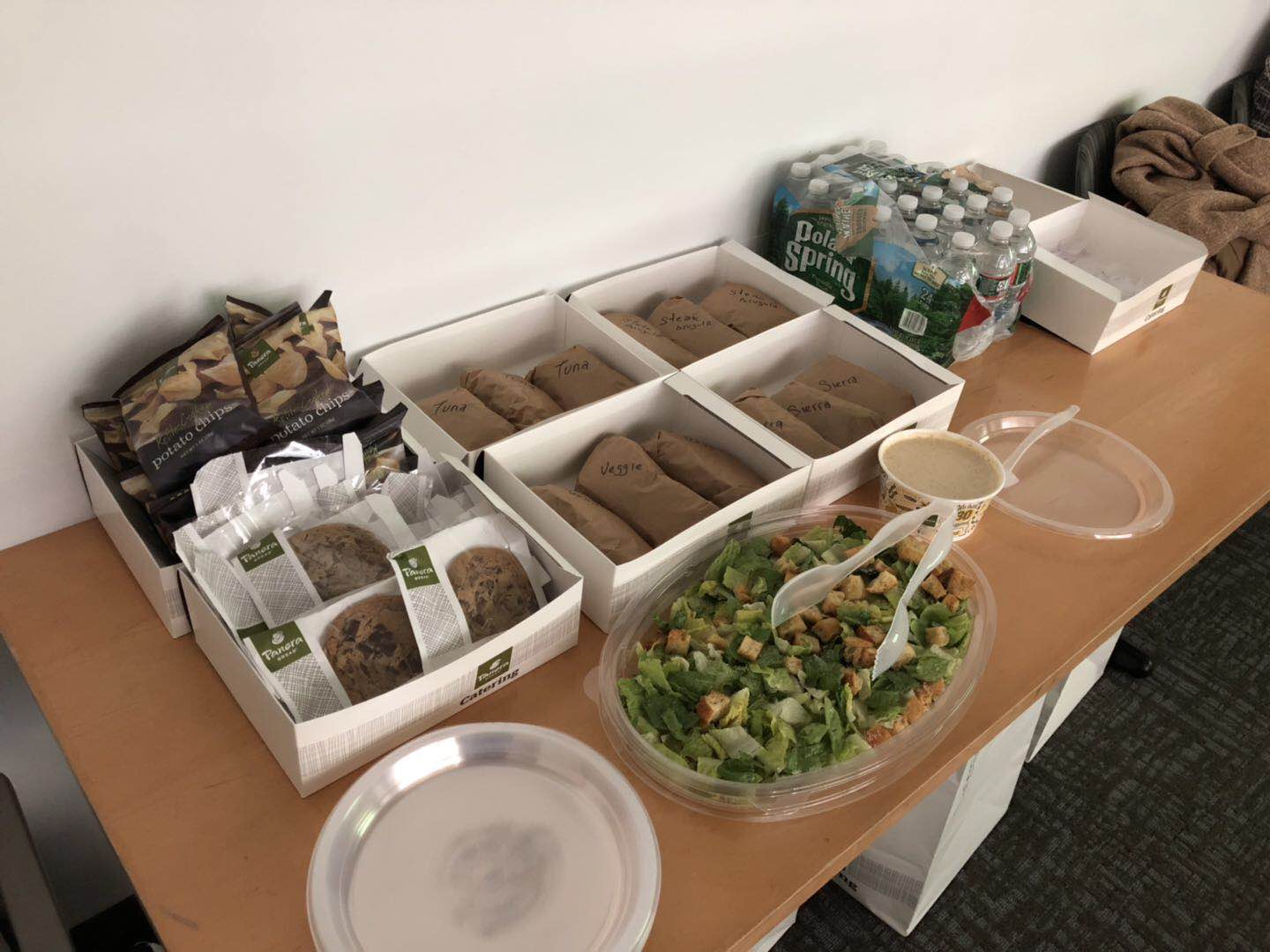 Most of the United States is feeling the cold of winter at the moment, but it's never too early to start planning your compost setup. As you all may guess, I'm a big proponent of sustainable living, even in the laboratory, and the habits we develop could also lead to a healthier yard and surrounding natural landscape. As a teacher in Chicago, I developed an engineering project with my students to turn a part of our school courtyard into a vegetable garden, and we incorporated composting into it. It was a very cost-effective project as the students would bring in their unused vegetable scraps, recycled papers, and egg shells to school and develop their own compost mixes from which we would derive fertilizing materials for corn and squash. We ended up growing quite a bit of corn and not much else, but I anticipate that was because of the suboptimal lighting due to our building blocking the bulk of the sun's rays most of the day. But imagine what you could do with a little planning and a bit more budget than a public school (but that's a story for another day)!
Most of the United States is feeling the cold of winter at the moment, but it's never too early to start planning your compost setup. As you all may guess, I'm a big proponent of sustainable living, even in the laboratory, and the habits we develop could also lead to a healthier yard and surrounding natural landscape. As a teacher in Chicago, I developed an engineering project with my students to turn a part of our school courtyard into a vegetable garden, and we incorporated composting into it. It was a very cost-effective project as the students would bring in their unused vegetable scraps, recycled papers, and egg shells to school and develop their own compost mixes from which we would derive fertilizing materials for corn and squash. We ended up growing quite a bit of corn and not much else, but I anticipate that was because of the suboptimal lighting due to our building blocking the bulk of the sun's rays most of the day. But imagine what you could do with a little planning and a bit more budget than a public school (but that's a story for another day)!
Why Compost?
When I go to restaurants, and even in my own home, I see a lot of uneaten food being tossed either because people just didn't have room in their stomachs, or they're parts of the vegetable or dead animal that simply won't go into the recipe. These are of course organic materials, and as such are biodegradable and useful to the ecosystem as Mufasa explained to Simba once upon a time. To reduce the amount that ends up unused (except by very intrepid seagulls and pigeons and rats) in landfills, we can instead put selected portions of these food scraps into a compost heap to return nutrients and organic matter to soil that can grow new crops. Here's an expert opinion on that matter:
“Compost adds nutrients and organic matter back to soil, which benefits agriculture, reduces our reliance on synthetic fertilizers, diverts methane-producing organic materials from landfills, and improves soil’s water retention capacity so you don’t need to water as much.”
A way to be less wasteful, more environmentally conscious, AND make your garden better? Sold!
What to Compost
Thankfully, in some states such as California, sanitation companies provide green compost bins to put food scraps and certain paper food containers in to divert waste from landfill. You definitely want to throw unused meats, eggs, and other animal waste into that bin, but for most of your vegetable and fruit waste, you can add mixtures of that to your compost heap. The rule of thumb is that you will need both "brown" and "green" components in your pile. The "green" materials are mostly stuff that more recently died or that herbs that you had just cut from your veggie garden to use in stew, which includes grass clippings and even manure. The "brown" materials are like twigs and wood chips. The ratio is something you have to optimize for your own garden, just like in your experiments, but usually a one-to-one ratio of brown to green will work to keep the microorganisms happy as they chomp away at the compost goodies and prepare them for re-use.
Another consideration is the carbon-to-nitrogen ratio, and for that I offer this resource, in addition to the previous resources, to tell you what you should and should not add to your pile to produce optimal compost while avoiding curious wildlife. The hard and fast rule is to avoid meat products because those will stink when they decompose, and will also attract raccoons and other furry friends. It also helps to turn over the components in the pile-in-progress to aerate the materials so the microorganisms can continue to do their work and the compost heap doesn't turn into slime.
There are some states that are starting to allow human composting as well, but that's probably a bit too macabre for some of you, so that is obviously a final resort!
Set Up Your Compost Equipment
 Technically, you can just find an empty spot in your yard or communal garden to just start piling materials, and even set up a small box or fenced in area to contain the growing heap. But if you want to avoid resourceful birds from raiding your pile for nesting materials, you can consider covering up the pile as well. There are a variety of compost bins that are commercially available, such as this nifty tumbler that offers a quick method to turn the heap components over periodically without killing your back.
Technically, you can just find an empty spot in your yard or communal garden to just start piling materials, and even set up a small box or fenced in area to contain the growing heap. But if you want to avoid resourceful birds from raiding your pile for nesting materials, you can consider covering up the pile as well. There are a variety of compost bins that are commercially available, such as this nifty tumbler that offers a quick method to turn the heap components over periodically without killing your back.
If you don't want to spend that much on a compost bin, you can build your own! At school, I had my students use inexpensive two-by-four beams, PVC pipes, a Rubbermaid trash barrel with lid, some zip ties and a soldering iron to set up a series of compost tumblers. The cost for these items has probably risen since (thanks, inflation!) but it should still allow you to build your own MacGyverized container for a small fraction of the cost. The soldering iron was used to burn a door into the trash barrel, which could be secured by zip ties and latched shut to allow a small amount of aeration. Use your own ingenuity to find your own solutions that fit your budget!
More Composting Resources
When you're first starting, it may take a bit to find just the right mix of materials to create the ideal compost for your plants and herbs. In addition to composting, this first resource has plenty of other solutions to help you create a more sustainable lifestyle for both your health and the betterment of the world. Suggestions include how to reduce plastic and water use, be more energy efficient, and even how you can change your diet and exercise habits.
Since there is some time before you can start the compost pile going anyway, as most folks suggest starting in the spring, here is another resource that gives you a calendar of activities to create and maintain your heap. While you are waiting, it is okay to start a small bin and just turn it every now and then to get it ready for spring and summer when the composting process really ramps up. Good luck, and thanks for helping to create a more sustainable planet!




